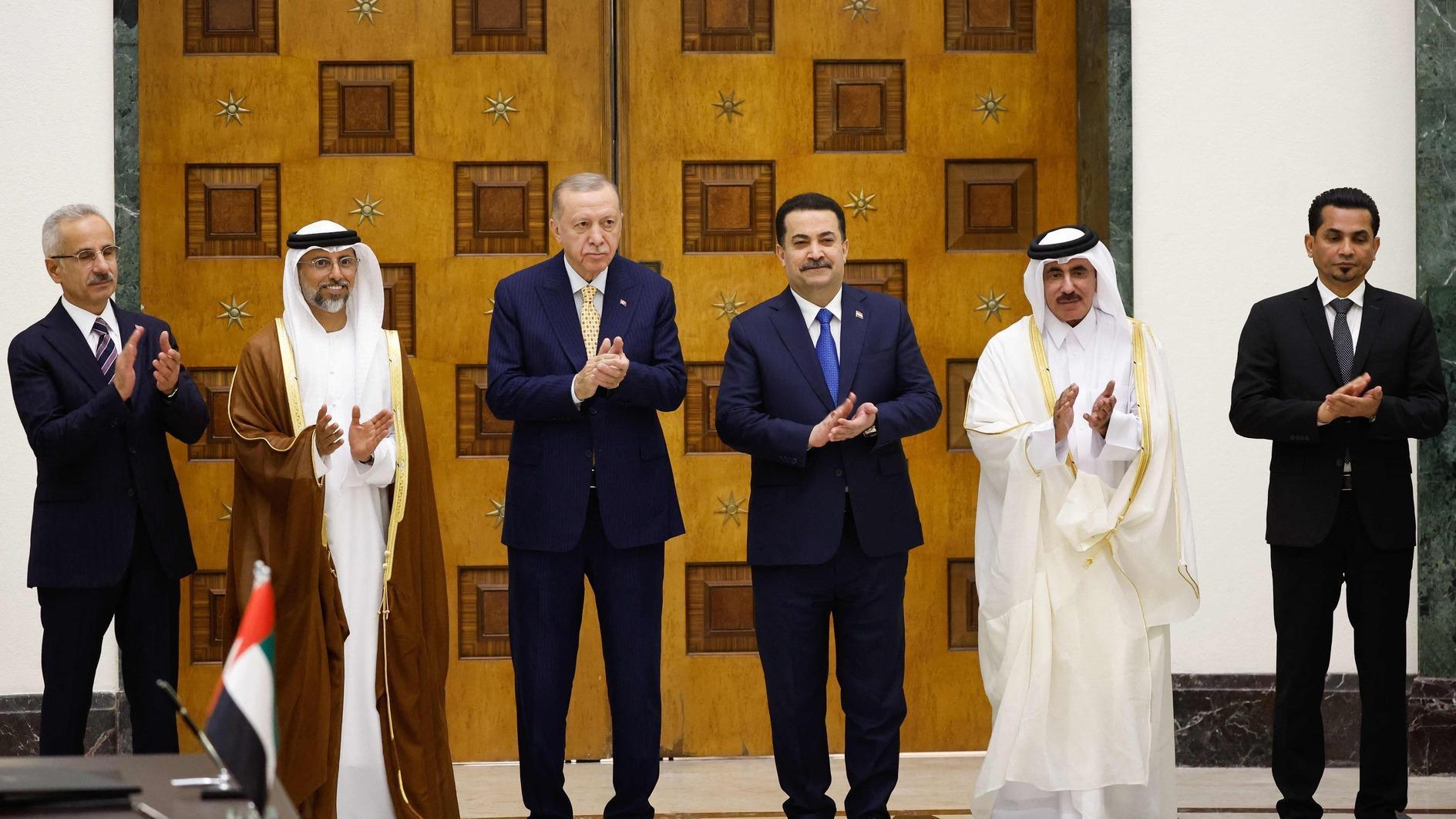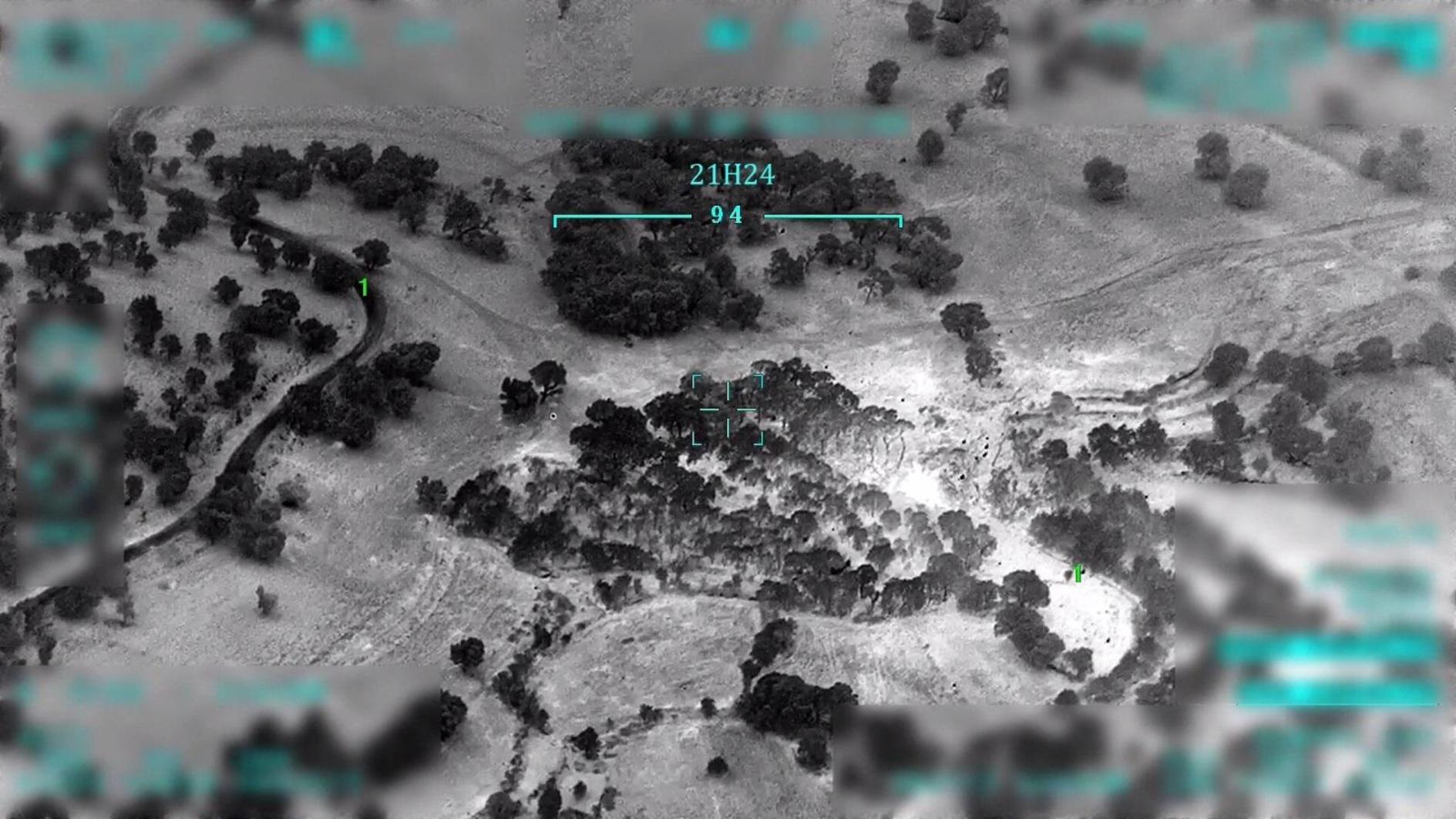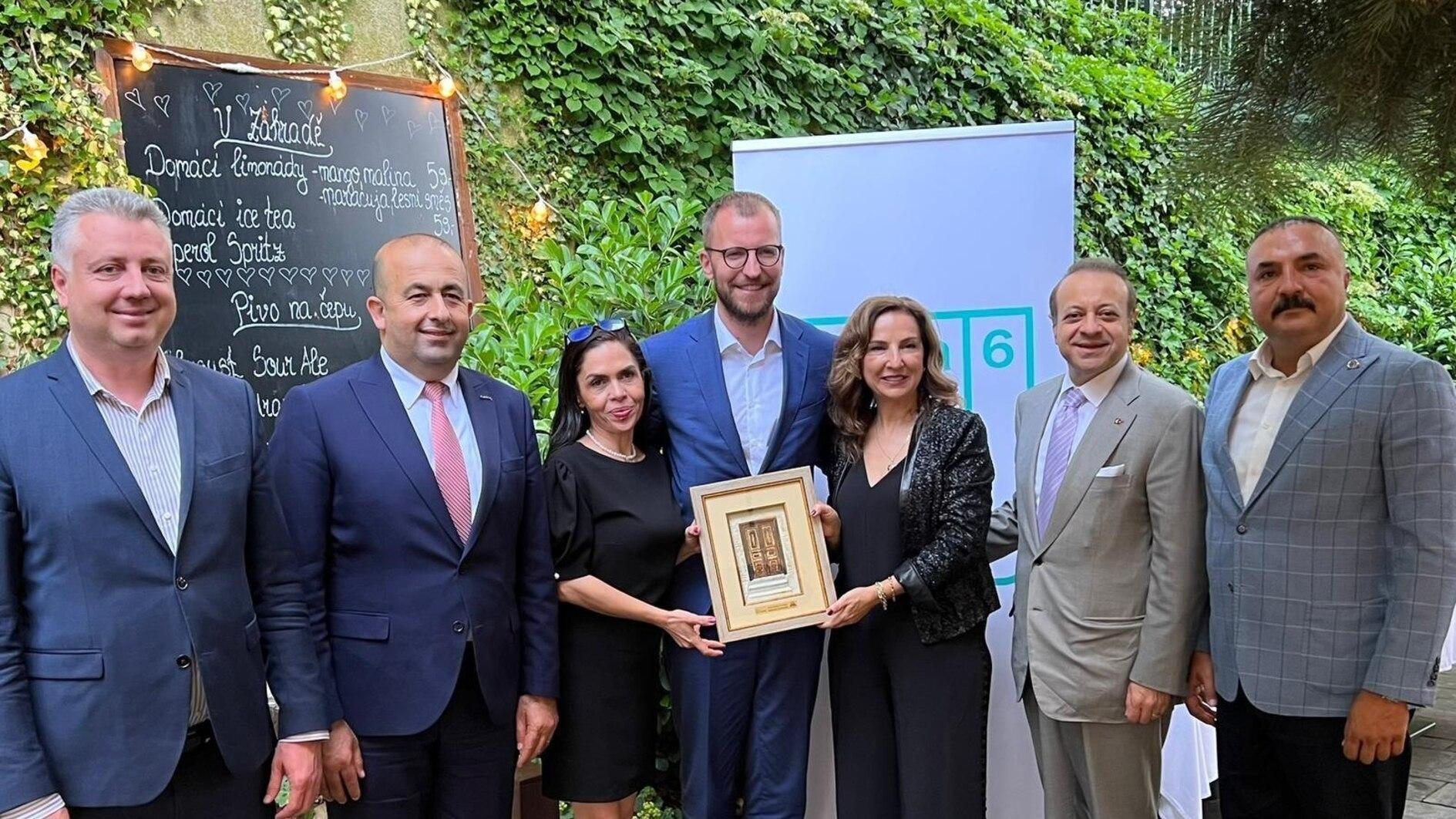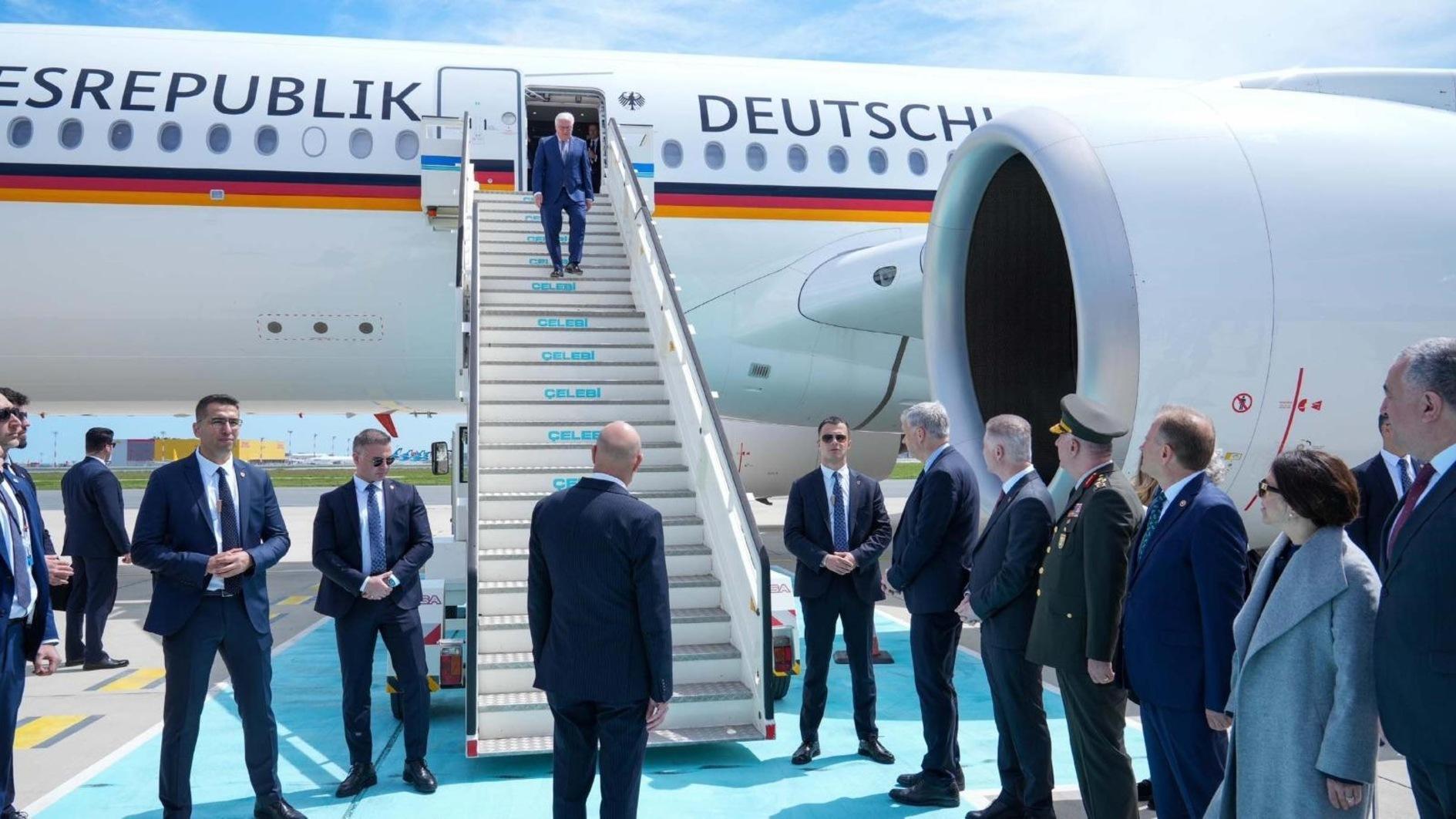Egypt crisis in stalemate amid EU mediation bid
CAIRO - Agence France-Presse
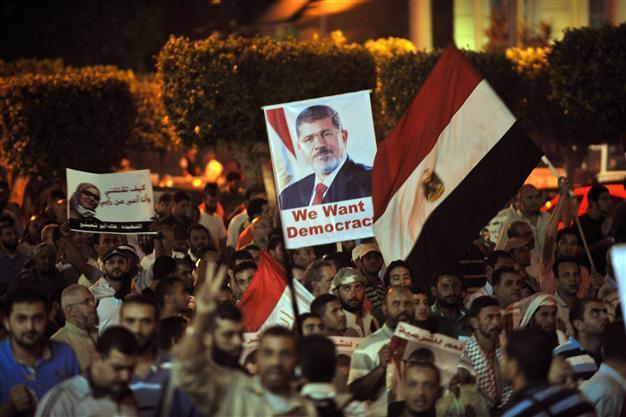
Egyptian supporters of the deposed president Mohamed Morsi hold his portrait and wave the national flags during a demonstration against the government in Cairo on July 31, 2013. AFP Photo
Diplomatic efforts to resolve Egypt's political deadlock gathered pace Wednesday, with the international community urging both sides to find a peaceful way out of the crisis sparked by president Mohamed Morsi's ouster.A day after EU foreign policy chief Catherine Ashton wound up a mediation mission to Egypt, Germany said its Foreign Minister Guido Westerwelle was heading to Cairo.
The EU also said its Middle East envoy would arrive in town to carry on Ashton's efforts, and two top US senators said they would head to Egypt next week at the White House's request.
Ashton left empty-handed on Tuesday, despite meeting with a string of officials and representatives, as well as Morsi himself, who remains in custody.
The rival camps appeared as entrenched as ever in their positions, offering little sign they are willing to compromise.
Late on Tuesday, Morsi loyalists marched towards a military intelligence building in Cairo, in defiance of warnings from the army to avoid approaching its facilities.
The march passed off peacefully, with demonstrators stopping short of the building and returning to their main protest camp by the Rabaa al-Adawiya mosque.
The interior ministry has warned that the camp will be cleared soon, and tensions remain high after the deaths of 82 people at a pro-Morsi rally on Saturday.
On Tuesday, Ashton said she had had a "friendly, open and very frank discussion" with Morsi at the undisclosed location outside Cairo where he is being held.
"Morsi is well," she told reporters after the two-hour meeting.
"He has access to information in terms of TV, newspapers, so we were able to talk about the situation and we were able to talk about the need to move forward." Ashton said her discussions with Morsi and his supporters, and interim government officials were intended to "facilitate the bringing together of ideas." "I don't come here to say somebody should do this, somebody should do that. This is your country," she said.
She met with army chief General Abdel Fattah al-Sisi, interim president Adly Mansour and vice president Mohamed ElBaradei, as well as a pro-Morsi coalition.
But after the talks, neither side appeared to have shifted their positions, with ElBaradei insisting Morsi would have no political role and his supporters continuing to demand his reinstatement.
"Mr Morsi failed but the Brotherhood continues very much to be part of the political process," ElBaradei said, adding that ending violence would be his first priority.
Foreign minister Nabil Fahmy too underlined in an interview with France 24 that "Egypt... has Islamists and they should be part of the future." Ashton said she would return to Egypt and EU spokesman Michael Mann said on Wednesday that the bloc's Middle East envoy, Bernardino Leon, would be in Cairo later to "continue the contacts and mediation efforts." Berlin said Westerwelle would arrive in Cairo on Wednesday "to get a sense of the situation during this critical phase." He "will promote the quick return to democratically-endorsed conditions, and the resumption of an inclusive transformation process," a spokesman told reporters.
Westerwelle will urge "cooperation, an end to violence and dialogue," he added, saying the German minister would however not try to meet Morsi.
In Washington, Senator Lindsey Graham said he and fellow Republican John McCain would head to Cairo next week.
"The president asked Senator McCain and myself to go to Egypt next week, so we're trying to find a way to get there," Graham told CBS television.
The visit would "reinforce in a bipartisan fashion the message that we have to move to civilian control -- that the military is going to have to allow the country to have new elections and move toward an inclusive, democratic approach," he said.
Hanging over the stalemate is a fear of renewed violence, after the 82 deaths, including a police officer, at a pro-Morsi protest in Cairo on July 27.
The interior ministry has said it plans to disperse the pro-Morsi sit-ins "soon," although it pledged to do so as peacefully as possible.
Sporadic violence has continued throughout the country, particularly in the Sinai Peninsula where two soldiers and three policemen were killed in shootings on Monday and Tuesday.


